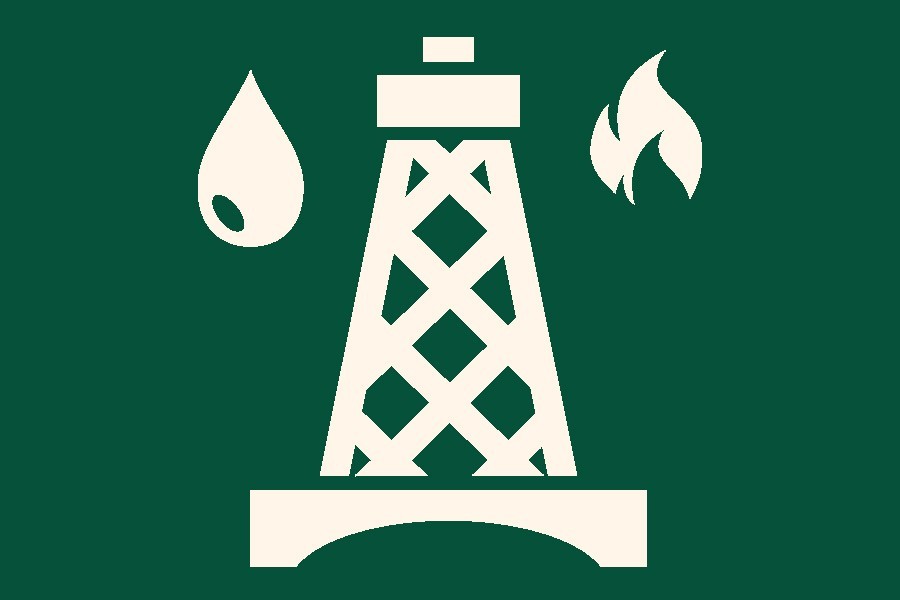
Published :
Updated :

The government has made a move to frame a maiden policy to expedite countrywide hydrocarbon explorations with an intent to rein in the growing reliance on imported fuels.
This is part of an initiative to explore hydrocarbon deposits across the country by local and foreign firms.
Energy and mineral resources division under power, energy and mineral resources ministry already drafted the policy weeks ago, said a senior ministry official.
The draft would be finalised soon, he continued.
Energy ministry now feels it urgent to accelerate local hydrocarbon explorations against the backdrop of the leanest-ever discoveries in the last one decade.
The 'lower-than-expected' explorations prompted the government to initiate the import of 'expensive' liquefied natural gas (LNG) since April 2018.
As planned, a geological survey will spot potential areas first, followed by a two-dimensional seismic survey to delineate prospective hydrocarbon reserves.
A three-dimensional survey and subsequent drilling will be carried in the potential areas thereafter.
The national oil and gas exploration companies will have to apply a standard exploration and operational procedure to ensure a better success.
The state-owned Bangladesh Petroleum Exploration and Production Company Ltd (Bapex) will have to formulate a detailed manual on it and ensure its execution.
International oil companies (IOCs) will get a chance to take part in the hydrocarbon exploration job here under production-sharing contracts (PSCs).
The PSCs will come up for update from time to time, if necessary, to lure IOCs in such activities.
Other interested firms may also take part in onshore exploration under a joint venture or 'concession.'
Modern technologies will be adopted and local as well as foreign expertise be utilised in discoveries.
A research and development unit will be set up to boost explorations by using modern technologies and relevant technical support.
Prof M Tamim of Bangladesh University of Engineering and Technology does not think the country requires such a policy that is not a binding one.
"What is needed is a prompt government decision to boost local exploration," the noted petroleum and mineral resources expert said.
"Bangladesh requires explorations urgently to increase overall natural gas output," observed Mr Tamim, also a former special assistant to the chief adviser of a caretaker government.
There is no alternative but to offer more contracts to IOCs onshore and offshore to speed up exploration and ensure future energy security, he maintained.
Prof Tamim further said, "The policy should determine how much of the total requirement of fuel the government would import and how much local resources it would utilize."
However, Prof Ijaz Hossain of the same university welcomed the government initiative.
He said the government should have adopted such a policy long ago.
Sources said the country discovered only four onshore gas fields with the total recoverable reserves of around 800 billion cubic feet (bcf) in last decade.
The onshore gas fields are at Bhola north, Rupganj, Srikail and Sundalpur.
Assigned by Bapex, Chinese energy exploration firm Sinopec, however, recently found an onshore natural gas prospect in Shariatpur.
The drilling of exploratory wells will be required to assess whether gas reserves there is commercially viable or not.
Natural gas discovery from 1997 to 2006 was around 6.18 trillion cubic feet (tcf) from two discovered gas fields-Moulvibazar and Bibiyana.
It was almost eight times higher than the discoveries in the decade under review, according to the Petrobangla data.
During the period, Bangladesh discovered an accumulated gas reserve of 3.15 tcf from Fenchuganj, Saldanadi, Shahbazpur, Jalalabad, Meghna and Narsingdi onshore fields and the lone offshore Sangu field.
It discovered 493.8 bcf during 1977-1986 from five onshore gas fields-Beanibazar, Begumganj, Kutubdia, Kamta and Feni.
According to Petrobangla, the total gas discovery from 1967 to 1976, during the then East Pakistan and the independent Bangladesh, was 1.65 tcf from Bakhrabad and Semutang gas fields.
The highest 14.66 tcf reserve was discovered during 1957-1966 from Titas, Habiganj, Kailashtila, Rashidpur and Chhatak onshore fields.
Before 1957, the lone Sylhet gas field, also named Haripur, was discovered in 1955 with a recoverable reserve of 318.9 bcf of natural gas.
Bangladesh currently imports around 580 million cubic feet per day (mmcfd) equivalent of LNG.
This is around 6.5 million tonnes of petroleum products apart from locally produced gas to the tune of 2,700 mmcfd and locally refined 1.2 million tonnes of petroleum products.
azizjst@yahoo.com


 For all latest news, follow The Financial Express Google News channel.
For all latest news, follow The Financial Express Google News channel.